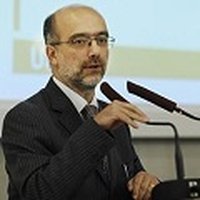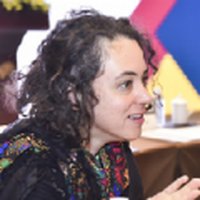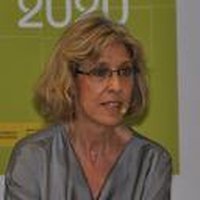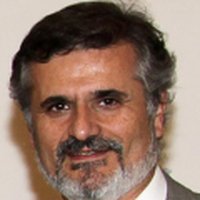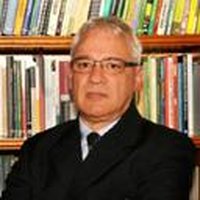Tourism Management at UNESCO World Heritage Sites (vol. 3)
- Durée : 20 mois
- Effort : 24 heures
- Rythme: Auto-rythmé
- Langues: Anglais et arabe
Ce que vous allez apprendre
À la fin de ce cours, vous saurez :
- Provide better experiences, understanding and management of tourism in World Heritage Sites.
- Access a wide theoretical overview of topics, theories and issues related to tourism and contextualize them within the field of cultural, heritage and sustainable tourism.
- Apply the theories to concrete examples of tourism management in heritage sites from all around the globe. A particular focus will be given in each chapter to the case study of tourism destination and World Heritage Site of Archaeological Site of Al-Hijr (Madâin Sâlih) thanks to the participation and collaboration of the RCU (The Royal Commission for AlUla) and AFALULA (French Agency for AlUla Development).
Description
The very term “Heritage” suggests that something of value has been transmitted through generations up to ours, and that such generations were and are able to access it as its heirs. In the case of World Heritage Sites, we need to balance and orchestrate preservation: the current generation should be able to visit and somehow enjoy heritage in a way that will allow future generations to benefit from and have access to it. Sustainability is a major part of the solution.
Since its establishment in 2002, the international UNESCO UNITWIN Network “Culture, Tourism, Development” has been working with its members – highly profiled researchers and professors – towards the goal of how tourism can coexist with, protect and sustainably enhance the outstanding value of the heritage belonging to all of humanity. It wants to share its knowledge in a spirit of solidarity among universities, decision makers, non-governmental organizations, civil society and the private sector.
For 2021, the MOOC series “Tourism Management at UNESCO World Heritage Sites” is releasing its third volume, providing new insights and numerous case studies from all around the world in all of its six chapters.
Format
An Arabic translation of this page is available by clicking on this link.
The course consists of six chapters, released one per week. During each chapter, learners will be able to gain knowledge about different aspects of Tourism Management at UNESCO World Heritage Sites thanks to ad-hoc documents and videos produced by members of an international network of prominent universities.
Participants will also have the opportunity to assess their understanding and learning progress through quizzes, as well as through various activities, discussions, and peer-to-peer evaluated activities.
During the six weeks, from May 24 until July 2, 2021, the pedagogical team is available to answer questions and give advice to the participants. Afterwards, you can still register to the course, watch videos, read the theoretical texts, answer quizzes, track your progress and discuss heritage tourism with an international community of people interested in tourism management at world heritage sites, but without the support from the pedagogical team.
The course remains available with all materials for enrolled students to use until the end of 2022.
Prérequis
The MOOC is open to everyone wishing to learn more about how tourism works at UNESCO World Heritage Sites. It has, however, a special focus on professional figures such as academics, site managers, state agencies, policy makers, students and other professionals involved in tourism.
It is NOT necessary to have completed the first and second volume of this MOOC in order to register to the current course. For interested first-time participants, the “Tourism Management at UNESCO World Heritage Sites” MOOC manuals, which gather all chapter documents of the previous volumes, will be available for download at the start of the course.
Evaluation et Certification
The assessment process is based on weekly quizzes, where participants can test their knowledge, and peer-reviewed online activities in which to put the newly gained notions into practice. Learners successfully completing the course (with a score of 80% or higher) will then receive a free course completion certificate.
Certificates will be issued during the following months: July 2021, December 2021, March 2022, June 2022, September 2022, December 2022.
Plan de cours
- Week 1 : The 1972 and 2003 UNESCO Conventions and the Concept of Outstanding Universal Value (OUV)
- Week 2 : UNESCO World Heritage Sites. Site Management Systems
- Week 3 : Local Communities’ Involvement and Sustainable Tourism
- Week 4 : Marketing
- Week 5 : Interpretation. Stories and Memories
- Week 6 : Information and Communication Technologies (ICTs). Orchestrating Them for Heritage Tourism
Équipe pédagogique
Maria Gravari-Barbas
Catégories
Lorenzo Cantoni
Catégories
Ilaria Rosani
Catégories
Carmen María Ramos
Catégories
Victoria Ayelen Sosa
Catégories
Établissements
Guest instructors

Ahmed Alimam
The Royal Commission for AlUla (RCU) (AlUla, Saudi Arabia)

Jean-François Charnier
L'Agence française pour le développement d'ALULA (AFALULA)

Melanie De Souza
The Royal Commission for AlUla (RCU) (AlUla, Saudi Arabia)

Peter Debrine
UNESCO World Heritage Centre (Paris, France)
Guest instructors
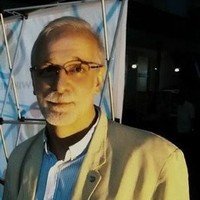
Andrew Hall
The Royal Commission for AlUla (RCU) (AlUla, Saudi Arabia)

Laila Nehmé
Centre national de la recherche scientifique (CNRS) (Paris, France)

Nicolas Lefebvre
L'Agence française pour le développement d'ALULA (AFALULA)

Rami Alsakran
The Royal Commission for AlUla (RCU) (AlUla, Saudi Arabia)
Other contributors

Shondel Bervini Monkow
Video maker at eLab – eLearning Lab USI (Lugano, Switzerland)

Nadeen Alkaydi
Translator of the MOOC materials – USI Alumni (Lugano, Switzerland)
An Arabic translation of this page is available by clicking on the link below
Follow us on Social Media!
Tag your MOOC-related posts with / :وشاركونا ملاحظاتكم عن المقرر الالكتروني المفتوح بإضافة الهاشتاق التالي #TourismMgmtWHS
Partners
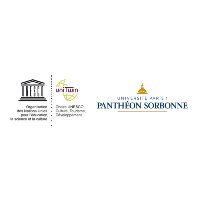
UNESCO UNITWIN Network "Culture, Tourism, Development"
The UNESCO-UNITWIN Network "Culture, Tourism, Development" was founded in 2002 by the UNESCO Chair "Culture, Tourism, Development" at Paris 1 Panthéon-Sorbonne University (Paris, France) and has since grown to about 30 member universities from all around the world. Its expertise lies in the fields of culture, tourism and development thanks to its numerous contributions in the research of tourism studies.

L’Agence Française Pour Le Développement D’Alula (AFALULA)
The French Agency for Alula Development (AFALULA) was created to support Saudi Arabia in the economic, touristic and cultural development of AlUla, a region boasting outstanding natural and cultural heritage. The Agency’s mission is to mobilize the full breadth of French expertise (specialists, operators, companies) and to support, within a co-construction framework, its Saudi partner, The Royal Commission for AlUla (RCU), located in Riyadh and AlUla. AFALULA is participating in and supporting the MOOC as a way to provide the future tourism operators and experts of AlUla with knowledge and training about sustainable tourism management in heritage sites.
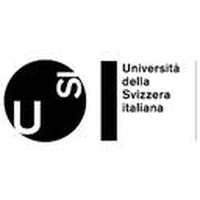
USI - Università della Svizzera italiana
Its UNESCO Chair in ICT to develop and promote sustainable tourism in World Heritage Sites, in collaboration with its fellow UNESCO UNITWIN Network "Culture, Tourism, Development" members, took care of the development and design of the three volumes of the "Tourism Management at UNESCO World Heritage Sites" MOOC thanks to its longstanding expertise in providing eLearning experiences. Through the eLab – eLearning Lab USI it created a variety of the videos and common video credits used for this MOOC
Paris 1 University eLearning Center - Service des Usages Numériques (SUN)
Licence
Licence pour le contenu du cours

Attribution - Pas d’Utilisation Commerciale - Partage dans les Mêmes Conditions
Vous êtes autorisé à :
- Partager — copier, distribuer et communiquer le matériel par tous moyens et sous tous formats
- Adapter — remixer, transformer et créer à partir du matériel
Selon les conditions suivantes :
- Attribution — Vous devez créditer l'oeuvre, intégrer un lien vers la licence et indiquer si des modifications ont été effectuées à l'oeuvre. Vous devez indiquer ces informations par tous les moyens raisonnables, sans toutefois suggérer que l'offrant vous soutient ou soutient la façon dont vous avez utilisé son oeuvre.
- Pas d’Utilisation Commerciale — Vous n'êtes pas autorisé à faire un usage commercial de cette oeuvre, tout ou partie du matériel la composant.
- Partage dans les Mêmes Conditions — Dans le cas où vous effectuez un remix, que vous transformez, ou créez à partir du matériel composant l'oeuvre originale, vous devez diffuser l'oeuvre modifiée dans les même conditions, c'est à dire avec la même licence avec laquelle l'oeuvre originale a été diffusée.
Licence pour le contenu créé par les participants du cours

Attribution - Pas d’Utilisation Commerciale - Partage dans les Mêmes Conditions
Vous êtes autorisé à :
- Partager — copier, distribuer et communiquer le matériel par tous moyens et sous tous formats
- Adapter — remixer, transformer et créer à partir du matériel
Selon les conditions suivantes :
- Attribution — Vous devez créditer l'oeuvre, intégrer un lien vers la licence et indiquer si des modifications ont été effectuées à l'oeuvre. Vous devez indiquer ces informations par tous les moyens raisonnables, sans toutefois suggérer que l'offrant vous soutient ou soutient la façon dont vous avez utilisé son oeuvre.
- Pas d’Utilisation Commerciale — Vous n'êtes pas autorisé à faire un usage commercial de cette oeuvre, tout ou partie du matériel la composant.
- Partage dans les Mêmes Conditions — Dans le cas où vous effectuez un remix, que vous transformez, ou créez à partir du matériel composant l'oeuvre originale, vous devez diffuser l'oeuvre modifiée dans les même conditions, c'est à dire avec la même licence avec laquelle l'oeuvre originale a été diffusée.
test test



